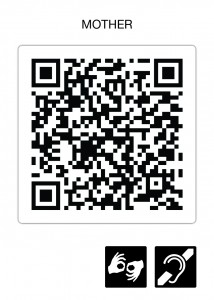Maree Kalkeeyorta lives in the remote community of Aurukun in Cape York Peninsula, Far North Queensland. She has a son and three daughters, the eldest of whom, Lynette, was born with cerebral palsy. I had the very good fortune of being welcomed into Maree’s family in Aurukun, in the 1980s. She has strong – Wik Woman – blood pulsing through her veins: her mother and her older sister were song-women and ‘keepers and teachers’ of culture. Maree learnt well from them and is renowned in her community for practising her culture and passing on the stories and skills. Her journey through life has not been easy – she lost her mother and sister soon after the birth of her disabled baby and she was then, herself, still a young teenager. Maree has given her life to caring for Lynette, in a remote community where few conveniences exist. Lynnie has never been to school, nor has she had access to regular physiotherapy sessions, which would have improved her outcomes and her quality of life. Maree has little respite to enable her to focus on the needs of her younger children. Her life’s experiences have forced her to call on that strong Wik Woman bloodline. Etched in my mind is the sight of Maree, pushing Lynnie (who is now a fully grown adult) in a wheelchair, in the heavy red, gravelly dirt – in 35 degree heat. Strength, culture and the love of a mother prevail, even
in the face of such adversity.’
ELIZABETH COWIE
TRANSITION SUPPORT TEACHER, DEPARTMENT OF EDUCATION, TRAINING AND EMPLOYMENT
“It is time to ask: are we Aborigines a serious people? … Do we have the seriousness necessary to maintain our languages, traditions and knowledge? … The truth is that I am prone to bouts of doubt and sadness around these questions. But I have hope. Our hope is dependent upon education. Our hope depends on how serious we become about the education of our people.”
NOEL PEARSON – RADICAL HOPE
“Noel Pearson is a lawyer and activist, and director of the Cape York Institute for Policy and Leadership. He is one of Australia’s most original and provocative thinkers turns his attention to the question of education. Noel Pearson begins with two fundamental questions: How to ensure the survival of a people, their culture and way of life? And can education transform the lives of the disadvantaged many, or will it at best raise up a fortunate few? Pearson argues powerfully that underclass students, many of whom are Aboriginal, should receive a rigorous schooling that gives them the means to negotiate the wider world. He examines the long-term failure of educational policy in Australia, especially in the indigenous sector, and asks why it is always “Groundhog Day” when there are lessons to be learned from innovations now underway. Pearson introduces new findings from research and practice, and takes on some of the most difficult and controversial issues. Throughout, he searches for the radical centre – the way forward that will raise up the many, preserve culture, and ensure no child is left behind.”

